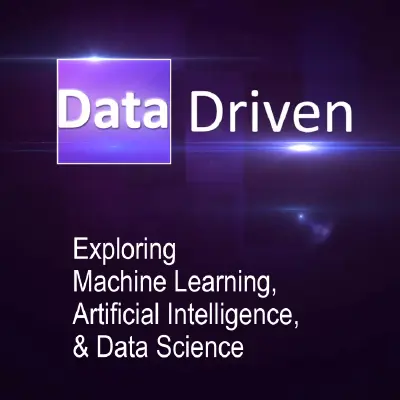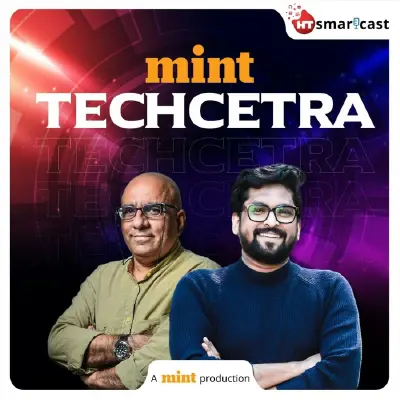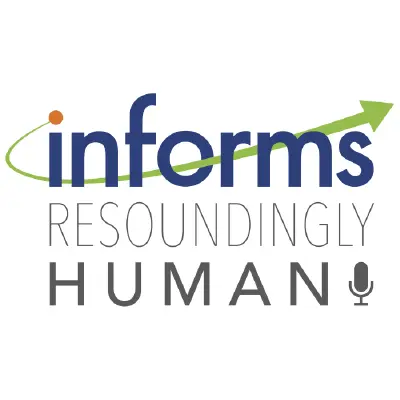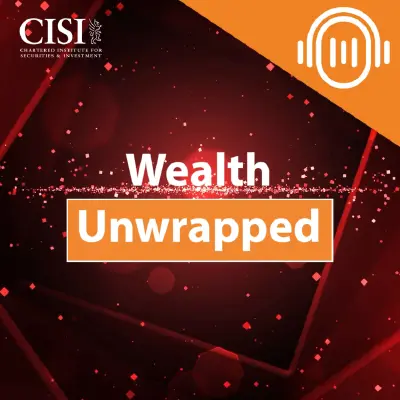Podcasts about Mathematics
Episodes about Mathematics
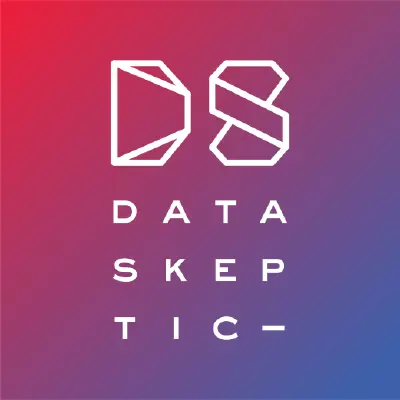
In this episode, Kyle does an overview of the intersection of graph theory and computational complexity theory. In complexity theory, we are about the runtime of an algorithm based on its input size. For many graph problems, the interesting questions we want to ask take longer and longer to answer! This episode provides the fundamental vocabulary and signposts along the path of exploring the intersection of graph theory and computational complexity theory.
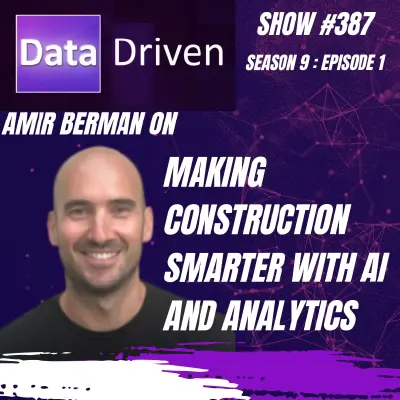
In this episode, host Frank La Vigne is joined by Amir Berman, VP of Industry Transformation at Buildots, to explore how AI, computer vision, and cutting-edge analytics are revolutionizing the construction industry. Forget everything you thought you knew about dusty blueprints and endless delays—Amir shares how technology is helping build smarter, safer, and more efficient job sites. From real-time progress tracking with 360° cameras to predictive analytics that keep billion-dollar projects on schedule, this conversation uncovers how digital transformation is reshaping one of the world’s oldest industries. Whether you’re a tech fanatic, data enthusiast, or just curious about how skyscrapers go from chaos to code, this episode builds a compelling case for the power of AI in construction. Grab your virtual safety goggles—let’s get hands-on with the future of building.Linkshttps://buildots.com/http://thedatadrivenbook.com/Timestamps00:00 Construction's Digital Transformation Insights09:15 Tech Vendors: Respect Contractors' Limits14:23 "Technology Enhances Construction Oversight"17:03 "Rewiring Minds: Tech Enhances Performance"27:25 Predictive Analytics Exposes Construction Delays28:19 Proactive Problem-Solving in Construction38:31 Tech-Enhanced Workforce Retention Strategy40:28 AI for Pipeline Problem Mitigation45:14 "From Flash to Data Analytics"52:24 The Innovator's Dilemma Explained54:56 Embracing AI After Windows Mobile Flop01:00:29 "Smart Construction with Computer Vision"
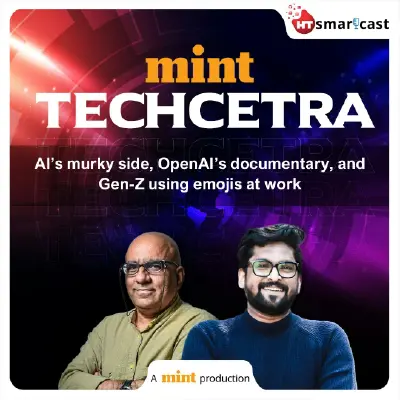
Can you blame the tech company for building a technology that willfully at fault for creating a bot, which performed the way it did? and one that’s becoming harder to answer. As chatbots like Character.AI start mimicking human intimacy (minus the actual feelings), who’s really responsible when things go wrong? The bot? The builder? Or the blurred line between product and service under liability law?
In today's episode, we talked about all this and more. Do let us know what you feel about which side of the conversation is right on our social media handles.
Learn more about your ad choices. Visit megaphone.fm/adchoices

May 30, 2025
FLASHCARDS: Math in Your Head: Metric Conversions Without the Math
Math! Science! History! ❭
Ever find yourself squinting at a metric label, trying to figure out how much a liter is in cups—or how heavy your suitcase is in pounds? In this episode of Math! Science! History!, host Gabrielle Birchak shares fast, intuitive tricks to help you convert metric units, without numbers, calculators, or charts. Through rhythm, storytelling, and everyday comparisons, you’ll learn how to feel conversions in your head, whether you’re driving, walking, or cooking. From chocolate bars and milk jugs to cat weights and yoga mats, we’re turning complex conversions into simple, memorable cues. This episode is perfect for anyone who wants to sharpen their mental math, and sound like a genius without pulling out their phone. 3 Things You'll Learn in This Episode: - How to mentally visualize metric conversions using sensory and familiar objects—no math required.- Real-world reference points for converting volume, weight, distance, and temperature.- Simple memory tricks to help internalize metric vs. imperial conversions while on the go. Resources Mentioned:Metric System Overview – National Institute of Standards and Technology (NIST) Quick Conversion Tables – Metric Conversions 3 Simple Tricks For Converting Metric Units In Your Head Explore more on our website: mathsciencehistory.com To buy my book Hypatia: The Sum of Her Life on Amazon, visit https://a.co/d/g3OuP9h Let’s Connect! www.Instagram.com/math.science.history https://bsky.app/profile/mathsciencehistory.bsky.social https://www.linkedin.com/company/math-science-history/ https://www.threads.com/@math.science.history Enjoying the Podcast? If you love Math! Science! History! here’s how you can help: Leave a review – It helps more people discover the show! Share this episode with friends & fellow history buffs! Subscribe on your favorite podcast platform ☕ Support the Show! We are sponsored by Coffee!! https://shorturl.at/bHIsc Checking out our merch: https://www.mathsciencehistory.com/the-store Music: All music is public domain and has no Copyright and no rights reserved. On Matters of Consequence from The Little Prince by Lloyd Rodgers Until next time, carpe diem!
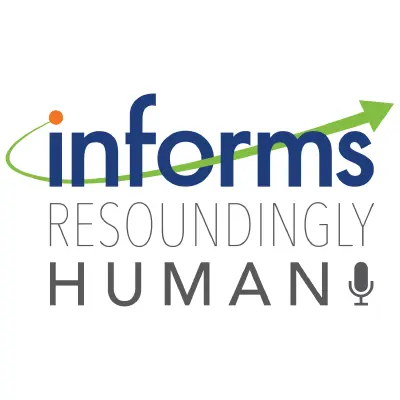
Welcome to the final episode in our special series of Resoundingly Human podcasts highlighting the finalist teams for the 2025 Franz Edelman Award, the Nobel Prize of Analytics. These finalist projects represent teams from around the world who have leveraged advanced analytics to transform their organizations, address their most significant challenges, and better serve their customers and communities. Prior to the 2025 Analytics+ Conference, I had the opportunity to sit down with 5 of the 6 teams and today I’m joined by members of the team representing Flipkart to share some insight into their incredible work.
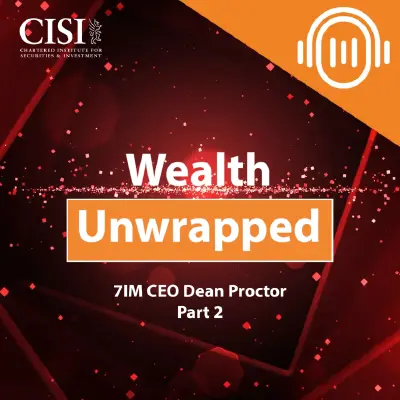
In Part 2 of Wealth Unwrapped’s conversation with Dean Proctor, CEO of 7IM, host Glenn Murphy continues the deep dive into Dean’s journey—this time shifting focus to the future of wealth management and the evolving role of leadership in finance. Building on the personal insights shared in Episode 3, Dean explores how technology, client expectations, and cultural shifts are reshaping the industry. He discusses the importance of intentionality in both business and life, and how his leadership philosophy has adapted in response to change. This thoughtful continuation offers listeners a candid look at how experience, adaptability, and purpose come together to guide the next chapter of success. Hosted on Acast. See acast.com/privacy for more information.

This week: The big cheese. It's Euclid time. Come with me on a journey through his optics, astronomy and or course the elements - a week of exceptionally good maths.
The Music was:
"Danse Macabre - Finale"
Kevin MacLeod (incompetech.com)
Licensed under Creative Commons: By Attribution 3.0
http://creativecommons.org/licenses/by/3.0/

May 12, 2025
Correction: the Correct Author of the Proof from Last Episode, and an AI flop
Iowa Type Theory Commute ❭
I correct what I said in the last episode about the author of the proof of FD from last episode based on intersection types. I also describe AI flopping when I ask it a question about this.
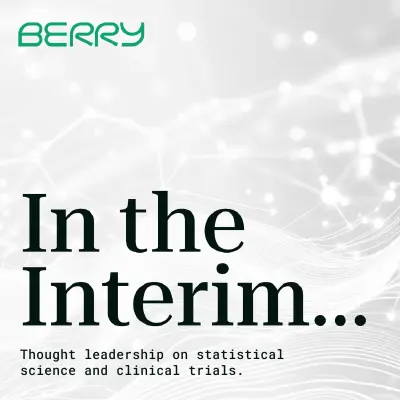
In the latest episode of "In the Interim…", Dr. Scott Berry and Dr. Mike Krams sit down with Dr. Husseini Manji, to explore the potential of platform trials in advancing precision medicine within psychiatry. Listen as we discuss how an adaptive platform trial could transform drug development, paving the way for breakthroughs in understanding and treating psychiatric disorders.Key Highlights:Overview of the burden of serious mental illness and the pressing need for innovative treatment approaches.Discussion on precision psychiatry and the potential of a platform trial to address the heterogeneity of psychiatric disorders.Insights into the advantages of biomarker-based adaptive trials in improving drug development success rates.Examination of potential sponsorship models for platform trials, emphasizing patient and industry collaboration.Quotes:"Mental illnesses represent a significant global challenge with a staggering unmet need." – Husseini Manji"There's a real excitement about precision psychiatry—moving away from a one-size-fits-all approach." – Husseini Manji"The patient perspective is crucial for driving significant advances in psychiatric treatment." – Mike Krams"We believe that precision medicine biomarker-based adaptive trials could be game-changing in this space." – Husseini Manji

Episode Overview: In this Flashcard Friday episode of Math! Science! History! host Gabrielle Birchak shines a light on the incredible story of Jacoba van den Brande, a seventeenth-century Dutch visionary who dared to imagine a world where women could be educated in mathematics, philosophy, and the sciences. Long before women had access to formal education, Jacoba not only excelled in math herself but also proposed the radical idea of an all-female academy. Join us as we explore her life, her bold vision, and how her ideas still echo through the halls of academia today. Three Things You’ll Learn in This Episode: The life and legacy of Jacoba van den Brande and her place in the history of mathematics. The barriers women faced in 17th-century Europe when pursuing intellectual and academic opportunities. Why Jacoba’s vision of an all-female academy remains relevant to ongoing conversations about equity and access in education. Resources & Further Reading: Wikipedia entry on Jacoba van den Brande Women in Science: 50 Fearless Pioneers Who Changed the World by Rachel Ignotofsky “Women and Science Before the Enlightenment” - Journal Article via JSTOR Simon Stevin: Biography & Contributions 🔗 Explore more on our website: mathsciencehistory.com 📚 To buy my book Hypatia: The Sum of Her Life on Amazon, visit https://a.co/d/g3OuP9h 🌍 Let’s Connect! 🎧 Enjoying the Podcast? If you love Math, Science, History, here’s how you can help:🌟 Leave a review – It helps more people discover the show!📢 Share this episode with friends & fellow history buffs!🔔 Subscribe on your favorite podcast platform ☕ Support the Show 🛍 Checking out our merch: https://www.mathsciencehistory.com/the-store 🎙 Sponsored By: Coffee!! https://shorturl.at/bHIsc 🎵 Music: All music is public domain and has no Copyright and no rights reserved. On Matters of Consequence from The Little Prince by Lloyd Rodgers Until next time, carpe diem!
